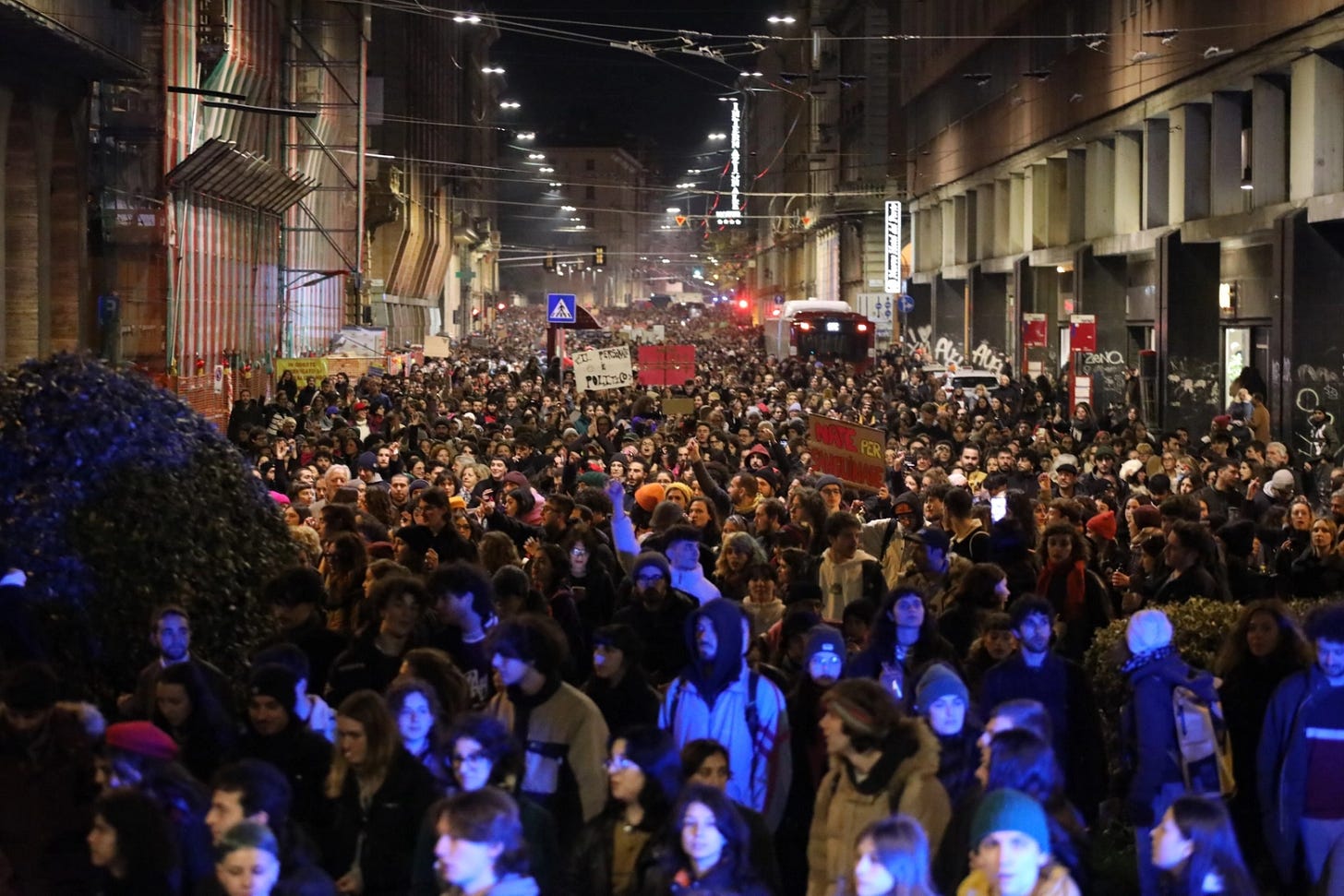Dear readers — just a brief post this week I’m afraid as I’ve been out of action with some infernal bug all week, and I’m still recovering.
In the meantime - lurg or no lurg - I couldn’t not update on (another) horrific act of gender-based violence that took place in Italy over the weekend. Last Saturday, the body of Giulia Cecchettin, a 22-year-old student, was found wrapped in a plastic bag punctured by multiple stab wounds near an isolated lake in the Veneto region. Filippo Turetta, her ex-boyfriend, was responsible for the murder (as evidenced by CCTV footage among other things).
This has been a 24/7 media story. And while some of the coverage has been appropriately sober, there have been some perverse spectacularized takes too. Representatives from the Lega have been spewing-out the usual nonsense live on-air: complaining about Cecchettin’s apparently “Satanic” clothes, and so on — as if any of that were relevant here. Still, I must say, more generally, it’s been dispiriting to see mayors and parliamentarians across the political spectrum suddenly taking to the streets to respond to this particular high-profile case after having turned a blind eye to this systemic issue for so long.

Because the facts speak for themselves. On average, a woman is killed every three days in Italy in a family/emotional setting. This is a centuries-old emergency which, in recent-relative-terms, continues to get worse (femicides in 2022 were up 16% on 2021, and 115 women have already lost their lives this year to patriarchal violence).
Right now there’s a whole pseudo debate going on about “whether or not gender-based violence is a political issue”. It is. Of course it is. But don’t take my word for it. The feminist collective Non una di meno has been writing manifestos on the topic, and proposing various measures to address the situation, for years now. And their mobilization this week has been particularly heartening. Across the country, thousands have have responded to their call for action, taking to piazzas from Milan to Rome to demand reforms in educational, legal, political and social spheres that could limit and one day (one hopes) end violence against women.
Cecchettin’s death is one among many. And the road to meaningful change will take years. But that’s exactly the point. Now is precisely the moment for society as a whole to keep this issue at the centre of public discouse — and, more concretely, rally behind realizable short-term concrete proposals such as these [ITA only].
Non una di meno is organizing a national mobilisation in Rome on Saturday afternoon with attendance expected at over 100,000. For more information click here. See below for a sample of the local demonstrations which took place earlier this week.
About Me
My name is Jamie Mackay (@JacMackay) and I’m an author, editor and translator based in Florence. I’ve been writing about Italy for a decade for international media including The Guardian, The Economist, Frieze, and Art Review. I launched ‘The Week in Italy’ to share a more direct and regular overview of the debates and dilemmas, innovations and crises that sometimes pass under the radar of our overcrowded news feeds.
If you enjoyed this newsletter I hope you’ll consider becoming a supporter for EUR 5.00 per month (the price of a weekly catch-up over an espresso). Alternatively, if you’d like to send a one-off something, you can do so via PayPal using this link. No worries if you can’t chip-in or don’t feel like doing so, but please do consider forwarding this to a friend or two. It’s a big help.


